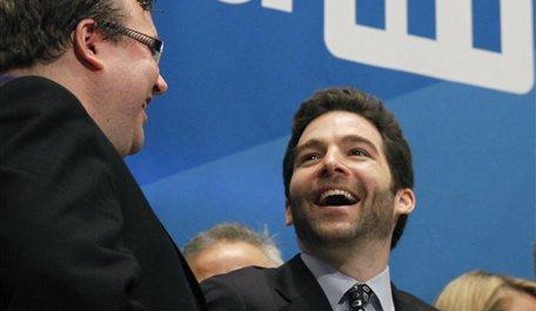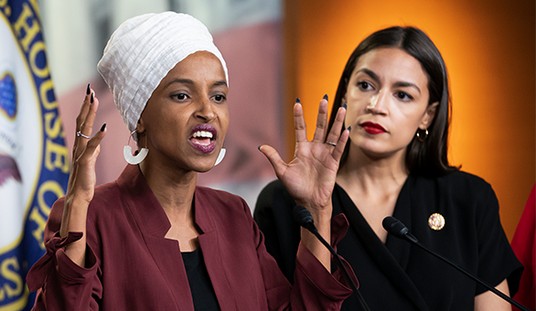King Banaian, chair of the Economics department at St. Cloud State University and a fellow at the Minnesota Free Market Institute, makes an argument for government intervention to resolve the financial crisis at The American Experiment. King, a free-market economist, argues that the problem facing financial institutions is the utter lack of a market for ill-advised derivatives based on previous, and even more ill-advised, government intervention. As long as the action taken now does not involve coercion, King believes that the US government can create a free market that will allow proper valuation of these derivatives:
The “free market” did not get us into this mess, but we need the free market to get us out. For that to happen, the free market needs government as a partner, whether conservatives like that idea or not. …
[W]e suffer from more than a liquidity crisis at this time, and the most disconcerting for the free marketer is that many assets and derivatives on the banks’ balance sheets have an undetermined price. Mortgages on real properties are relatively easy to liquidate, but some other bank assets are relatively new securities innovations that turned out to be bad ideas. How these will be liquidated is unknown.
Ideally the government can act as a “market maker of last resort” in these securities, just as the Federal Reserve was envisioned as a lender of last resort for the liquidity crises of old. If the government can create a market where none exists, our system might recover without too much violence done to it.
Free markets do not mean always private markets. Free markets mean markets with an absence of coercion. It is possible for government to step forward for a missing market and not be coercive. A bailout that did not consume taxpayer dollars would be one example.
I’ve also argued that the government that created the crisis through fraudulent business practices has a responsibility to provide at least part of the solution. The derivatives got out of hand, and that was the fault of the private sector, but without the massively overvalued securities issued by Fannie Mae and Freddie Mac, and without their insatiable thirst for lending paper allowing lenders to issue loans risk-free, the derivatives wouldn’t present anywhere near the problem they do now.
Creative destruction can provide plenty of new opportunities for private investors — but only as long as credit remains available. The problem in this collapse is that credit will tighten to nearly impossible levels unless a market for the controlled destruction of these toxic assets can arise. King sees this happening already in global markets, with credit costing almost 7% with Libor and 11% at the European Central Bank. The net effect will be that investment capital will have to work harder to create more opportunities, even as we desperately need it to create a boom from the creative destruction of the markets.
The problems will not occur overnight, but will stretch out over a long period of decline in investment. Jobs will evaporate, and without credit, investor capital will escape into non-productive savings. Existing businesses will take less risk, retreat from expansions and projects, and consumer spending will contract. Proper management on the margins can keep this from becoming a depression, but without rational pricing on credit, we’re in for a long and hard recession.
That doesn’t necessarily mean that the legislation in front of Congress is the completely correct approach, either, although it keeps improving (except for the pork) on each successive iteration. But the government that created this mess with its coercion over a period of several years needs to act at least to remove that coercion and to stimulate a market for the products of its failure. Be sure to read King’s entire essay.








Join the conversation as a VIP Member